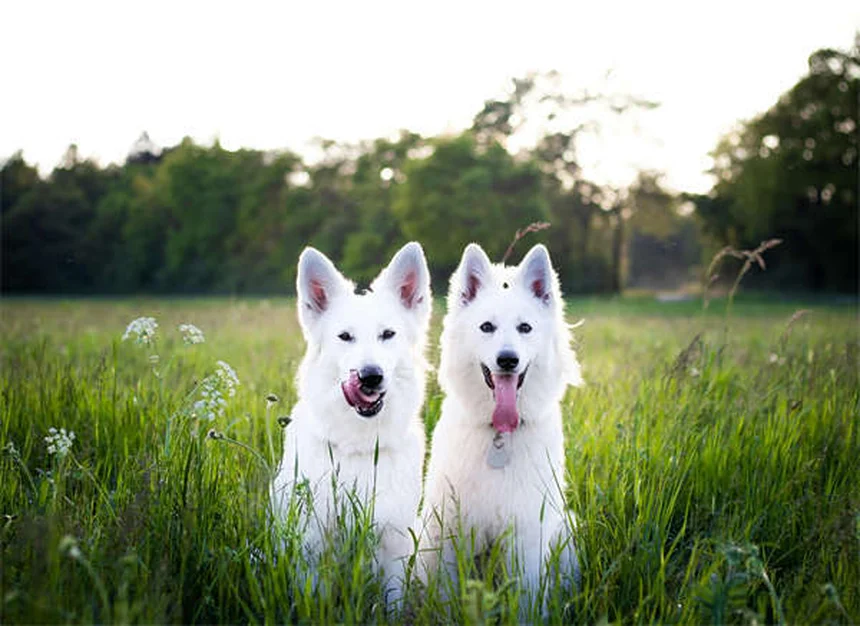Are roses toxic to cats? The simple answer is no - roses themselves are not poisonous to your feline friend. As a cat owner myself, I know how worrying it can be when your curious kitty starts nibbling on plants. But here's the good news: whether we're talking about fresh-cut roses in a vase or rose bushes in your garden, the actual flower petals won't harm your cat.Now, before you breathe a complete sigh of relief, there are some important cautions you should know about. While the rose flower isn't toxic, those sharp thorns can cause injuries, and the pesticides or flower food often used with roses can be dangerous. I've seen too many cases where well-meaning pet owners didn't realize these hidden risks.In this article, I'll walk you through everything you need to know to keep your cat safe around roses. We'll cover what to do if your cat already ate some petals, how to spot potential problems, and which rose plants to actually avoid (hint: some aren't real roses at all!). Stick with me, and you'll be able to enjoy your roses without constantly worrying about your furry companion.
E.g. :New Tank Syndrome: 5 Must-Know Fixes for Your Aquarium
- 1、Are Roses Actually Dangerous for Your Feline Friend?
- 2、The Hidden Dangers of Roses for Cats
- 3、What If Your Cat Already Ate Roses?
- 4、Beware of Imposter Roses!
- 5、Beyond Roses: Other Common Flowers and Their Impact on Cats
- 6、The Science Behind Plant Toxicity in Cats
- 7、Creating a Cat-Safe Garden
- 8、When Plants Become Playthings
- 9、FAQs
Are Roses Actually Dangerous for Your Feline Friend?
The Good News About Roses and Cats
Let me tell you something that'll make you breathe easier - roses themselves won't poison your cat. Whether we're talking about those gorgeous red roses in your Valentine's bouquet or the climbing roses in your backyard, the actual flower petals pose no toxic threat to your curious kitty.
Now, here's an interesting fact: there are over 150 natural species of roses (genus Rosa) and countless cultivated varieties. None of these contain substances that are poisonous to cats. So when your cat gives those roses a curious sniff or even takes a tiny nibble, you don't need to panic about poisoning.
But Wait - There Are Some Cautions
Before you turn your home into a rose garden, let's talk about the real concerns with roses and cats:
| Rose Part | Potential Risk | What to Watch For |
|---|---|---|
| Petals | Mild stomach upset | Occasional vomiting |
| Leaves | Mild stomach upset | Diarrhea or decreased appetite |
| Thorns | Physical injury | Cuts, abscesses, internal damage |
| Pesticides | Severe poisoning | Multiple symptoms (see below) |
Did you know that cats are obligate carnivores? That means their digestive systems aren't designed to handle plant material well. So even though rose petals aren't toxic, eating too many might give your cat an upset stomach - kind of like when you eat too much junk food!
The Hidden Dangers of Roses for Cats
 Photos provided by pixabay
Photos provided by pixabay
Those Pesky Thorns
Here's where things get prickly - literally! Rose thorns can be dangerous for your feline friend in several ways:
First, imagine your cat rubbing against a rose bush. Those sharp thorns can easily scratch their delicate skin or, worse, their eyes. And since cats love to mark their territory by rubbing against things, this could become a real problem in your garden.
Second, if your cat decides to chew on a rose stem (because let's face it, cats chew on everything), those thorns can cause serious damage to their mouth, throat, or digestive tract. I've seen cases where a single thorn caused an abscess that needed veterinary treatment.
The Chemical Culprits
Now, here's something that might surprise you: the biggest danger isn't the rose itself. It's what humans put on roses that can really harm your cat.
Think about it - when you buy cut roses, they often come with those little packets of flower food. And garden roses? They're frequently treated with pesticides. Both of these contain chemicals that can be deadly to cats.
Here's a quick list of symptoms to watch for if you suspect pesticide poisoning:
- Vomiting or diarrhea
- Loss of appetite
- Trouble walking or seizures
- Difficulty breathing
If you notice any of these, don't wait - call your vet immediately. Time is critical when dealing with poisoning cases.
What If Your Cat Already Ate Roses?
Don't Panic - Here's What to Do
Okay, so you just caught Mittens nibbling on your rose bouquet. What now?
First, stay calm. Remember, the rose itself isn't toxic. Check to see if there were any pesticide treatments or flower food involved. If not, your cat will probably be fine, though they might have a mild stomach ache.
But here's an important question: Did your cat ingest any thorns? If the answer is yes, it's better to be safe than sorry. Give your vet a call to see if they recommend bringing your cat in for an examination.
 Photos provided by pixabay
Photos provided by pixabay
Those Pesky Thorns
For minor scratches from thorns, you can:
- Gently clean the area with pet-safe wipes
- Apply a cat-friendly antiseptic
- Monitor for signs of infection
For anything more serious - especially if you think your cat swallowed thorns or is showing signs of pesticide poisoning - skip the home treatment and head straight to the vet. Trust me, it's better to make that trip and find out it's nothing than to wait too long.
Beware of Imposter Roses!
Not All "Roses" Are Created Equal
Here's where things get tricky. Some plants have "rose" in their name but aren't actually roses at all - and many of these are toxic to cats. Let me give you some examples:
- Desert Rose (Adenium obesum) - Can cause serious heart problems
- Christmas Rose (Helleborus niger) - Highly toxic, affects the nervous system
- Primrose (Primula vulgaris) - Can cause vomiting and diarrhea
See what I mean? That's why it's so important to know exactly what kind of plant you're dealing with. When in doubt, look up the scientific name or ask your florist.
Creating a Cat-Safe Floral Environment
Want to enjoy flowers without worrying about your cat? Here are my top tips:
1. Always research plants before bringing them home
2. Remove thorns from cut roses (carefully!)
3. Keep flower food and pesticides locked away
4. Provide cat grass as a safe alternative for chewing
Remember, with a little knowledge and preparation, you and your feline friend can enjoy the beauty of roses without any worries. Now go give your cat some extra pets - they deserve it for being so curious about the world!
Beyond Roses: Other Common Flowers and Their Impact on Cats
 Photos provided by pixabay
Photos provided by pixabay
Those Pesky Thorns
You might think roses are the main concern, but let me drop a bombshell - lilies are far more dangerous for cats than roses could ever be. Even small amounts of lily pollen can cause kidney failure in cats. I've seen cases where just drinking water from a vase containing lilies sent a cat to emergency care.
Here's something that'll make your jaw drop: Easter lilies, tiger lilies, daylilies, and Asiatic lilies are all extremely toxic. The scary part? Many cat owners don't realize this until it's too late. If you have cats, it's best to avoid keeping lilies in your home altogether.
Sunflowers - A Surprisingly Safe Choice
Looking for a cat-friendly alternative? Let's talk about sunflowers! These cheerful blooms are non-toxic to cats, making them a great option for pet owners. The best part? Sunflowers don't have thorns or sharp edges that could hurt your curious feline.
But here's a fun fact - while the flowers themselves are safe, the stems can be a bit tough. If your cat decides to chew on them (because we all know how cats love to chew), they might get a mild stomach ache. Nothing serious, but something to keep in mind!
The Science Behind Plant Toxicity in Cats
Why Are Some Plants Toxic to Cats?
Ever wonder why cats react differently to plants than we do? It all comes down to their unique biology. Cats lack certain liver enzymes that help break down plant compounds. What's harmless to us can be poisonous to them because their bodies can't process it properly.
Here's an interesting comparison between human and feline digestion:
| Digestive Feature | Humans | Cats |
|---|---|---|
| Ability to break down plant matter | Excellent | Poor |
| Liver enzymes for detoxification | Numerous | Limited |
| Natural diet | Omnivorous | Carnivorous |
This explains why something as simple as a lily can be deadly to cats while causing no issues for humans. Their bodies just aren't equipped to handle certain plant compounds.
The Curious Case of Catnip
Now here's a plant that has the opposite effect! While many plants are dangerous for cats, catnip (Nepeta cataria) is completely safe and actually beneficial. The active compound, nepetalactone, triggers a harmless euphoric response in about 50-70% of cats.
Isn't it fascinating how one plant can be deadly while another is like cat candy? This just goes to show how important it is to know exactly what you're bringing into your home when you have feline friends.
Creating a Cat-Safe Garden
Plants That Are Actually Good for Cats
Want to create an outdoor space that's safe and enjoyable for your cat? Let me introduce you to some great options:
Cat grass (usually wheatgrass or oatgrass) is perfect for indoor or outdoor planting. It gives cats something safe to chew on and can actually help with hairballs. Spider plants are another excellent choice - they're non-toxic and the long leaves provide entertainment.
Here's a pro tip: plant these in accessible areas where your cat likes to hang out. You'll be surprised how quickly they'll take to their new "salad bar"!
Designing a Stimulating Yet Safe Environment
Did you know you can create an entire sensory garden for your cat? It's easier than you think! Combine safe plants with different textures - soft lamb's ear, sturdy rosemary, and wispy cat grass make for an interesting mix.
Add some cat-friendly herbs like catmint (different from catnip) and watch your feline friend enjoy their own little paradise. Just remember to avoid using any chemical fertilizers or pesticides - stick to organic options to keep your cat safe.
Here's something to consider: Why not create vertical spaces too? Cats love climbing, so incorporating safe plants at different heights can turn your garden into an exciting adventure zone. Use sturdy pots or raised beds to create levels they can explore.
When Plants Become Playthings
Understanding Your Cat's Behavior
Let's face it - cats will be cats. Their natural curiosity means they'll investigate anything new in their environment, especially plants. But have you ever wondered why they're so drawn to greenery?
In the wild, cats often eat grass to help with digestion or to induce vomiting when they've eaten something disagreeable. This instinct remains strong in domestic cats, which explains why they're so interested in your houseplants. Providing safe alternatives can satisfy this natural urge while protecting your other plants.
Making Your Existing Plants Less Appealing
If you have plants you don't want your cat to bother, here are some clever deterrents:
1. Place citrus peels around the base - most cats hate the smell
2. Use double-sided tape around the pot - cats dislike sticky surfaces
3. Provide more attractive alternatives nearby
4. Try aluminum foil around the base - the sound and texture deter many cats
Remember, punishment doesn't work with cats. Instead, make the plants you want to protect less appealing while offering better options. This positive approach works much better in the long run!
At the end of the day, understanding your cat's needs and behaviors is the key to creating a harmonious living space for both of you. With a little planning and knowledge, you can enjoy beautiful plants while keeping your feline friend safe and happy.
E.g. :are any sort of roses toxic for cats ? : r/CatAdvice
FAQs
Q: Can rose petals make my cat sick?
A: While rose petals aren't toxic, they can still cause mild stomach upset in cats. Here's why: cats are obligate carnivores, meaning their digestive systems aren't designed to process plant material efficiently. If your cat eats too many petals, you might see some vomiting or diarrhea - kind of like when we humans eat something that doesn't agree with us. The good news? These symptoms are usually temporary. Just keep an eye on your kitty and make sure they're drinking water. If the vomiting persists beyond 24 hours or your cat seems lethargic, that's when you should call your vet. Remember, it's always better to be safe than sorry when it comes to our furry friends!
Q: What should I do if my cat ate rose thorns?
A: If you suspect your cat has eaten rose thorns, don't panic but do act quickly. Those sharp thorns can cause damage to your cat's mouth, throat, or digestive tract. First, check your cat's mouth carefully for any visible thorns or injuries. If you find any, try to gently remove them with tweezers if possible. Next, monitor your cat closely for signs of distress like excessive drooling, difficulty swallowing, or loss of appetite. Even if your cat seems fine, I recommend calling your vet for advice - they might want to examine your cat or recommend an x-ray to check for internal damage. In my experience, it's much better to catch these issues early before they develop into serious problems.
Q: Are pesticides on roses dangerous for cats?
A: Absolutely - pesticides are one of the biggest hidden dangers when it comes to roses and cats. Many common garden pesticides contain chemicals that can be deadly to cats, even in small amounts. Symptoms of pesticide poisoning can include vomiting, diarrhea, seizures, and even trouble breathing. If you use roses in your garden, always opt for pet-safe pesticides or better yet, natural pest control methods. And here's a pro tip: if you receive cut roses, remove those little flower food packets immediately - they often contain chemicals harmful to cats. I always tell my clients: when in doubt, assume any chemical treatment could be dangerous for your pet.
Q: How can I tell if a plant is a true rose or a toxic imposter?
A: This is such an important question! Many plants have "rose" in their name but aren't actually roses at all. True roses belong to the genus Rosa, while imposters like Desert Rose or Christmas Rose can be highly toxic. Here's how I tell the difference: true roses have characteristic thorny stems and that classic rose flower shape with layered petals. When buying plants, always check the scientific name on the label. If you're unsure, snap a photo and use a plant identification app, or ask your local nursery. I've created a list of common toxic "rose" imposters that I share with all my pet-owning clients - it's been a real lifesaver for many cats!
Q: What are some safe alternatives to roses for cat owners?
A: If you want to enjoy flowers without the worry, there are several beautiful and safe options. Spider plants, African violets, and orchids are all non-toxic to cats. Many cat owners (myself included) also grow cat grass - it satisfies your kitty's urge to chew on greens without the risks. For cut flowers, consider Gerbera daisies or sunflowers. Here's a little secret I've learned: cats are often less interested in flowers with strong citrus scents, so lemon-scented plants might help keep them away. Whatever you choose, remember to research each plant thoroughly before bringing it home. Your cat's safety is worth that extra bit of effort!





